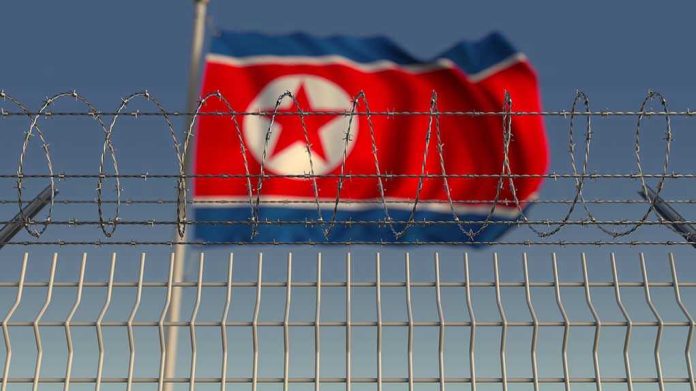
A massive North Korean cyber scheme, enabled by inside help from Americans and a Ukrainian, funneled millions to fund enemy weapons—exposing how weak vetting, remote work, and identity theft can threaten America’s national and economic security.
Story Snapshot
- DOJ announces five guilty pleas in North Korea IT fraud that exploited U.S. remote work to fund sanctioned weapons programs.
- Facilitators, including Americans and a Ukrainian, provided stolen identities and enabled North Korean operatives to infiltrate 136 U.S. companies.
- Scheme generated over $2.2 million for North Korea, highlighting vulnerabilities in hiring, vetting, and cybersecurity.
- Asset seizures and prosecutions send a warning, but experts say the threat of foreign infiltration remains high.
North Korean Cybercrime Infiltrates U.S. Workforce with Insider Help
The Department of Justice revealed that five individuals—four U.S. citizens and one Ukrainian—pleaded guilty to a sophisticated fraud operation that allowed North Korean IT workers to pose as remote employees at American companies.
By using stolen or borrowed U.S. identities and hosting company laptops, these facilitators helped North Korean operatives bypass security checks and get hired, often completely undetected by HR and IT departments.
This operation funneled more than $2.2 million into North Korea’s sanctioned weapons programs, directly threatening U.S. national security and the integrity of the American workforce.
Between September 2019 and November 2022, this scheme infiltrated at least 136 U.S. companies, exploiting the rapid rise of remote work during the COVID-19 pandemic. North Korean operatives, often posing as U.S. residents, were able to secure jobs, collect salaries, and transmit those funds back to their regime.
The facilitators provided not only identities but also physical access—hosting company-issued hardware in their homes and helping North Koreans pass vetting procedures. The Department of Justice responded with coordinated asset seizures and international cooperation, aiming to disrupt this major revenue stream for the Kim regime and its nuclear ambitions.
Remote Work and Lax Vetting: A Recipe for Exploitation
The pandemic-driven shift to remote work created new vulnerabilities in hiring and identity verification, which North Korea exploited to the fullest. U.S. companies, eager to fill tech roles without in-person interviews, often relied on digital vetting easily circumvented by insiders.
This allowed foreign adversaries to slip through cracks in the system. The DOJ’s investigation underscores the urgent need for stronger cybersecurity and more robust identity checks, especially as hostile regimes continue to adapt and manipulate global trends for their own gain.
Without vigilance, American businesses and citizens remain exposed to foreign schemes that undermine economic and national security.
Facilitators, motivated by easy money, acted as critical intermediaries—bridging the gap between North Korea and unsuspecting U.S. employers. Their willingness to sell out American interests for personal financial gain is a sobering reminder of the importance of personal responsibility and patriotism in protecting national interests.
The DOJ’s crackdown serves as a warning to those who would betray their country for profit, but also raises questions about how many other such operations might still be flying under the radar.
Economic and Security Fallout: The Broader Impact
The consequences of this infiltration are severe and far-reaching. Over $2.2 million was stolen from U.S. companies, with the money directly funding North Korea’s banned weapons programs.
American citizens whose identities were stolen or misused now face financial and reputational harm. The breach reinforces the need for legislative and technological solutions that close loopholes in remote hiring and vetting procedures, and for policies that put American security and sovereignty first.
As the DOJ pursues further investigations and asset recovery, business leaders and policymakers alike are being called to confront the reality of cyber-enabled threats that reach deep into the private sector.
Cybersecurity experts warn that hostile regimes like North Korea will continue to exploit weak points in America’s economic infrastructure. The DOJ’s coordinated response—including asset seizures and prosecution—demonstrates America’s resolve, but the fight is far from over.
Conservative leaders and voters know that protecting our borders, our companies, and our personal information isn’t just a matter of policy—it’s a matter of national survival.
As the Trump administration cracks down on illegal immigration and strengthens security, this case serves as a stark reminder: vigilance, accountability, and strong American values are our best defense against those who seek to undermine our country from within.
Sources:
Politico: North Korean Remote Work IT Scam
GovInfoSecurity: DOJ Continues Crackdown on North Korea’s Cyber Schemes

















